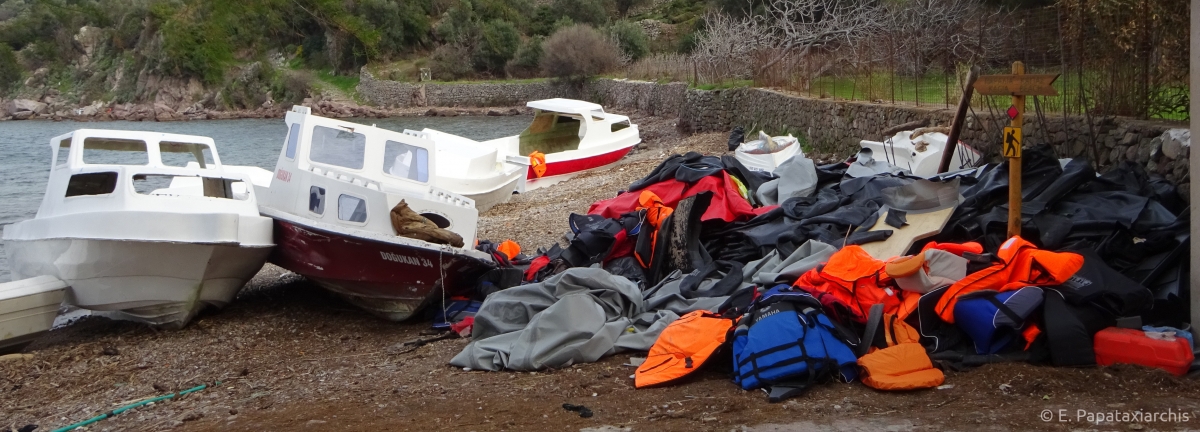
This Digital Archive is part of the Observatory of the Refugee and Migration Crisis. Its main aims are to collect, document, organize, preserve, digitalize and disseminate various categories of material referring to the refugee and migration crisis in the Aegean Sea. The Archive also documents and promotes research by members of the Greek and the international academic community. The Archive contains people's testimonies, diaries, published or un-published statistical and institutional records, articles originating in both print and digital formats, images, film, and video. The primary and secondary material is collected and distributed by the Archive in accordance with copyright rules.
Why was the Digital Archive created?
The first stimulus for the creation of the Digital Archive was the "Refugee Crisis of 2015”, an event of great importance on European and global scales that was geographically centered around the islands of the eastern Aegean and the Dodecanese—specifically Lesvos. The systematic, well-rounded, and reliable study of this ongoing "crisis” depends on the scale and quality of the available documentary basis regarding this extremely complex, and in many ways urgent, phenomenon.
A concern for preservation was also crucial in the creation of the Digital Archive. Above and beyond the refugees themselves (who were, of course, the central actors in this world event), the management of the refugee crisis engaged not only formal institutions, national and international, humanitarian or not, but also citizens—Greeks, and foreigners—as well as informal collectives, which played a central role in the humanitarian response in the Aegean. Certain aspects of the refugee crisis—reported and commented upon throughout both mass media and social media channels—were documented by a multitude of official institutions, some of which have their own documenting mechanisms as well as archives. Another, larger, part of the crisis was never officially documented but, instead, was chronicled through written or audio-visual accounts, often unofficially and in rough form, by refugees and migrants themselves, or by members of local communities, in the context of everyday practice. However, a third and equally important part of the refugee crisis was not documented at all, leaving only traces, such as elements of material culture, which are fading as time passes. Consequently, much of this material is in danger of being lost. The Archive responds to the need to salvage this very rich material and collect these diverse pieces into one integrated dataset. In this way, the Archive comprises a digital archive of material from the refugee and migration crisis, with unique importance both on quantitative and qualitative levels.
At the same time, the Archive houses secondary material, such as articles in the printed and digital press or posts on the social web of the Internet, and collects scientific papers, published or not published, on the refugee and migration crisis in the Aegean territory after 2015.
Who does the Digital Archive address
The Archive comprises a valuable tool for every person interested in being reliably informed on refugee and migration-related issues in the Aegean Sea. It seeks to address populations on the move themselves, the local communities, and the institutions of public administration and humanitarian governance, as well as wider Greek and international publics. Specifically, it offers a particularly valuable database for any researcher in the refugee and migration crisis.
Info and links of the Observatory
Everyone interested can be informed about the activities of the Observatory of the Refugee and Migration Crisis in the Aegean through its website refugeeobservatory.aegean.gr and through its accounts on social media (Facebook, Twitter)
The Archive of the Observatory is supported by the National Documentation Centre and its website by the Information Technology Services of the University of the Aegean.
Thanks
This important project could not be possible without the support of the Rectorate of the University of the Aegean, the Administration of the National Hellenic Research Foundation, and particularly the Administration of the National Documentation Centre as well as financial support of the Wenner-Gren Foundation for Anthropological Research.
